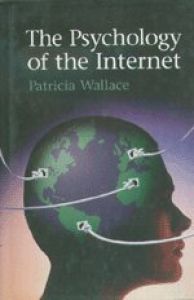
Recommendation
This is an early attempt to analyze Internet psychology. Patricia M. Wallace uses established psychological research - where it applies - to lay the foundation for understanding Internet psychology. Wherever possible, she cites contemporary Internet psychology research in presenting her opinions and conclusions; the problem is that there isn’t any. She finds very few compelling Internet research studies, and she’s the one who knows where to look. This book is just a little early out of the dock. The Internet is evolving so quickly that discussion of research conducted on Usenet groups already seems quaint. getAbstract.com recommends this book to people who want a general psychological review of the impact of the Internet. However, the same lightening-fast change that makes these questions so fascinating also makes it very difficult to pin down the answers.
Summary
About the Author
Patricia Wallace is Executive Director of the Center for Knowledge and Information Management at the University of Maryland Robert H. Smith School of Business. She wrote an interactive psychology CD-ROM called PRISM and co-authored the textbook, Introduction to Psychology, Fourth Edition. Dr. Wallace is also the principal investigator on grants from the Annenberg Projects/Corporation for Public Broadcasting dealing with language learning through CD-ROMs and the Internet.

















Comment on this summary